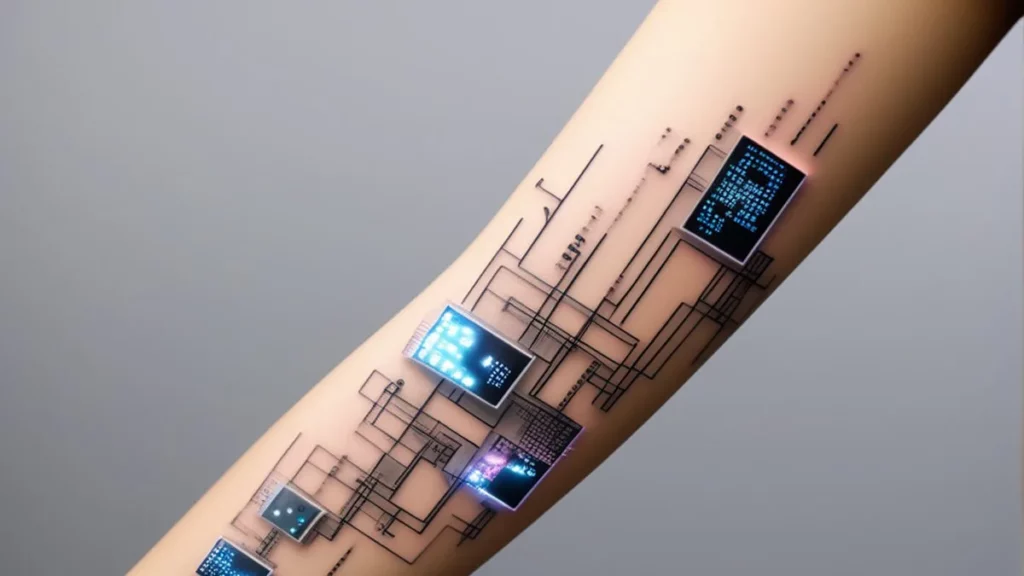Key Takeaways
- Apple is preparing to introduce AI-powered accessibility features for its devices, including simplified app interfaces, AI-enabled text identification, and a groundbreaking Personal Voice feature.
- The Assistive Access feature aims to make popular Apple apps more accessible and user-friendly by streamlining their user interfaces.
- Apple's Messages app will include a larger emoji-only keyboard and a video message recording option, while the Camera app will have a prominent "Take Photo" button with Assistive Access enabled.
- Apple Music and Photos apps will receive updates for improved readability and display of content.
- The Point and Speak feature in the Magnifier app will use machine learning to track finger movements and read aloud text pointed at by the user, aiding those with vision disabilities.
- Apple is enhancing its text-to-speech capabilities with the Live Speech feature, operational during calls and in-person conversations, and allowing users to record commonly used expressions.
- The Personal Voice feature will enable users to record their speech patterns and generate a voice that closely mimics their own, helping those with speech impairments.
- These AI-driven accessibility features are expected to be unveiled at Apple's Worldwide Developers Conference (WWDC) in June, showcasing Apple's commitment to innovation and inclusivity.
Apple is gearing up to unveil a host of AI-powered accessibility features aimed at revolutionizing user experiences for its phones, tablets, and laptops.
These forthcoming updates will include simplified app interfaces, AI-enabled text identification, and a groundbreaking feature that will allow users to record and replicate their voice.
New Accessibility Features for Common Apps
A key highlight of the upcoming rollouts is the Assistive Access feature which is set to transform how users interact with Apple’s most popular apps such as Photos, Phone, Messages, Camera, Music, and FaceTime.
By significantly streamlining the user interface (UI), Apple hopes to make these apps more accessible and user-friendly.
The new Messages app will be revamped with a larger emoji-only keyboard and a fresh option for recording video messages.
Additionally, the home screen and other apps will now come with optional grid-based layouts.
For instance, the Camera app, with Assistive Access enabled, will present a large “Take Photo” button highlighted in yellow at the bottom of the screen.
Apple Music is also due for a revamp, with songs and their album covers to be displayed in an easy-to-read, tiled format.
Apple’s Photos app will exhibit photo tiles in two rows, while Calls will display recent conversations prominently with large names and profile images directly on the screen.
Apple’s upcoming features, including Personal Voice, are expected to debut later this year, with more specific details likely to be unveiled at Apple’s Worldwide Developers Conference (WWDC) in June.

Enhanced User Experience with Machine Learning
In an attempt to assist users with vision disabilities, Apple is incorporating cutting-edge machine learning technology into its new Point and Speak feature in the Magnifier app.
This feature is designed to track users’ finger movements in front of the camera lens, and read aloud the text that the user is pointing to.
The innovation will employ the phone’s camera along with LiDAR and AI to read and pronounce the text, thereby simplifying the process of identifying buttons on a microwave or selecting the right floor on an elevator.
Personal Voice: Revolutionizing Communication
In what could be a game-changer for users with speech impairments, Apple is set to improve its text-to-speech capabilities across all user-end platforms.
The forthcoming Live Speech feature will be operational during phone and FaceTime calls, as well as during in-person conversations.
The feature will also allow users to record commonly used expressions for quick access.
Perhaps the most groundbreaking addition is the Personal Voice feature, which will enable users to record their speech patterns and create a voice that closely mimics their own.
The Personal Voice app will prompt users to read a random selection of text prompts, amounting to about 15 minutes of audio.
Using AI, the system will then generate speech that closely resembles the user’s personal style of speaking.
Looking Ahead: Apple’s AI Commitment
Apple’s upcoming features, including Personal Voice, are expected to debut later this year, with more specific details likely to be unveiled at Apple’s Worldwide Developers Conference (WWDC) in June.
By harnessing the power of AI for accessibility, Apple continues to demonstrate its commitment to innovation and inclusivity, aiming to transform the tech experience for users across the globe.








